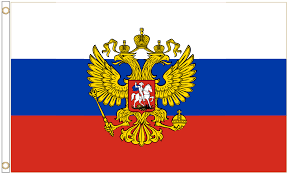The Russian Federation, the world’s largest country by land area, is a complex nation with a rich and tumultuous history. Its vast territory spans eleven time zones, encompassing a diverse range of landscapes, from the European Plain to the Siberian taiga and the Far Eastern mountains. This geographic diversity has shaped Russia’s culture, economy, and politics.
A Historical Overview
The history of Russia is a long and complex one, marked by periods of growth, decline, and transformation. The Kievan Rus’, a medieval state, laid the foundation for the Russian nation. The Mongol invasion in the 13th century had a profound impact, shaping Russia’s political and cultural development.
The 18th and 19th centuries witnessed the rise of the Russian Empire as a major European power. The Romanov dynasty, which ruled Russia for over three centuries, oversaw significant territorial expansion and cultural flourishing. However, the Russian Revolution of 1917, led by the Bolshevik party, overthrew the Tsarist autocracy and established the Soviet Union.
The Soviet Union, a communist state, existed for over 70 years. It was a period of rapid industrialization, scientific advancement, and geopolitical rivalry. However, the Soviet system eventually collapsed in 1991, leading to the formation of the Russian Federation.
A Modern Russia
Post-Soviet Russia has faced numerous challenges, including economic instability, political corruption, and social unrest. The country has sought to reassert itself as a global power, particularly under the leadership of Vladimir Putin. Russia’s foreign policy has been characterized by a mix of assertiveness and pragmatism, with a focus on protecting national interests and challenging the Western-led global order.
Russia’s economy is heavily reliant on the export of natural resources, particularly oil and gas. While this has provided significant revenue, it has also made the economy vulnerable to fluctuations in global commodity prices. The government has sought to diversify the economy and reduce its dependence on natural resources, but this has been a slow and challenging process.
Social and Cultural Landscape
Russian culture is a rich and diverse tapestry, influenced by a variety of sources, including Slavic, Asian, and Western traditions. Orthodox Christianity is the dominant religion, although there are significant Muslim and other religious minorities. Russian literature, music, and art have had a profound impact on world culture, producing renowned figures such as Tolstoy, Dostoevsky, Tchaikovsky, and Shostakovich.
Despite its rich cultural heritage, Russia faces social challenges such as poverty, inequality, and alcoholism. The government has implemented various social programs to address these issues, but progress has been uneven.
Russia’s Role in the 21st Century
Russia’s role in the 21st century remains complex and uncertain. The country faces a number of challenges, including economic stagnation, demographic decline, and geopolitical tensions. However, Russia also possesses significant strengths, such as its vast natural resources, skilled workforce, and strategic geographic location.
As Russia continues to navigate the complexities of the 21st century, it will be crucial for the country to address its domestic challenges, diversify its economy, and engage constructively with the international community. By doing so, Russia can secure a prosperous and stable future for its people.

Leave a Reply